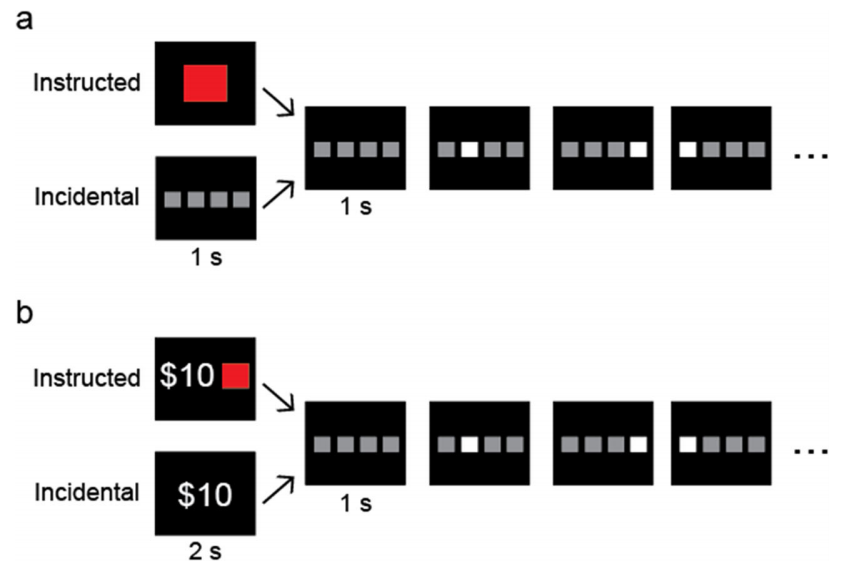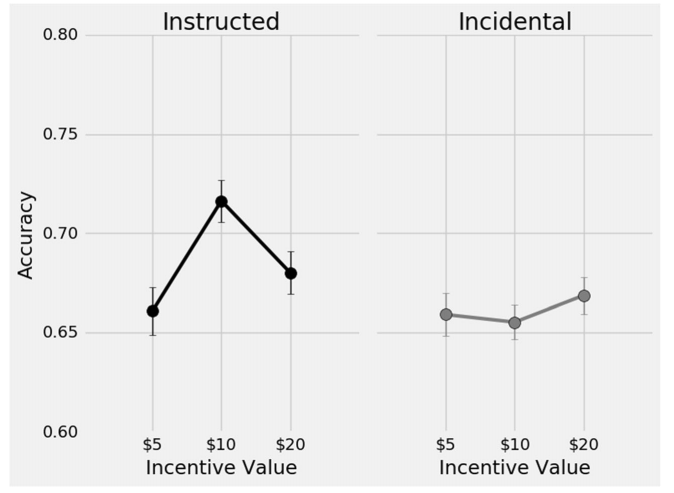Have you ever studied extremely hard for a test or an exam only to completely blank on all the information and bomb the exam? Or have you ever practiced extremely hard for a game, only to deliver an under-whelming performance on game day? If so, you, like many of us, have fallen prey to choking under pressure.
Choking under pressure occurs when an individual (who is expected to perform at a high level) fails to perform a task or skill under circumstances in which maximal skill performance is necessary (e.g., imagine the last 10 seconds in the 7th game of the NBA finals or the last play in the 4th quarter of the NFL Superbowl game). For these individuals, the desire for superior performance under intense pressure leads to poorer results.
The world of professional sports is one such arena where individuals experience choking under pressure. In fact, there are a number of internet posts dedicated to archiving the most iconic displays of choking under pressure, including, Rolling Stone and The Guardian.
Here are some examples of choking under pressure in professional basketball that are worth watching:
So why do we fall prey to choking under pressure? And more importantly, how do we make it stop?
These are the types of questions that Taraz Lee, Daniel Acuña, Konrad Kording, and Scott Grafton sought to address in a new article published in the Psychonomic Bulletin and Review. The authors investigated two candidate classes of theories of why choking under pressure occurs.
Theory 1: Distraction and explicit monitoring. According to this class of theories, assessment of performance under pressure results in a shift in attention and executive control which can negatively impact performance. This class of theories suggests that choking under pressure is more likely when an individual is highly aware or knowledgeable of the skill. For example, a veteran basketball player may be highly knowledgeable of the skill and physical form necessary to make a basket, and this knowledge can distract away from performance under pressure. This theory would predict that less knowledge or direct awareness of the skill during acquisition would decrease the likelihood of choking under pressure.
Theory 2: Over-motivation. According to this class of theories, over-arousal due to performance pressure can disrupt motor performance due to aversion or fear of loss. For example, the pressure of a championship game might lead to an over-motivation to win, and this in turn, might negatively affect performance. In contrast to distraction and explicit monitoring theories, choking due to over-motivation is predicted to happen regardless of the knowledge or skill awareness of the player.
To test the role of explicit skill awareness on choking under pressure, Lee and colleagues trained two groups of participants in a motor-sequencing task. One group received instructional sequence cues to facilitate skill awareness (Instructed Group) and the other did not receive cues to limit skill awareness (Incidental Group). After learning, the participants were then assessed on the motor sequences and given cash incentives for correct performance.
The figure below displays the basic task requirements for the motor-sequencing task. On each trial, participants were shown four gray squares on a screen.

Each square represented four buttons on the keyboard that could be pressed with the fingers of the participants’ non-dominant hand. For example, a right-hand dominant individual used the fingers on the left hand to press the key a, s, d or f. When the squares turned white in color, the participant was instructed to press the corresponding key as quickly as possible. Each participant was trained on three sequences varying in difficulty. Before each trial, the Instructed group was shown a colored square to indicate which sequence was coming. The Incidental group did not receive this cue.
Both theories might expect successful performance to initially increase as the cash incentive increases, but decrease at high values (i.e., performance will look like an inverted U-shape). This is because choking is expected to kick in if the stakes are (too) high. The two theories differ, however, in their predictions regarding instructions. If choking should be more apparent in the Instructed group compared to the Incidental learning group, this would support the distraction and explicit monitoring theory. By contrast, if choking did not differ between groups, this would support the motivation theories.
Performance was measured as movement times, the amount of time between the press of an initial key and the 8th key press in a sequence, as well as accuracy of reproduction. As expected, movement times decreased across trials. Also, movement times differed across the three sequences, suggesting that some were learned better than others. Furthermore, there was a slightly larger improvement in learning during training for the Instructed group compared to the Incidental group.
During testing, the Instructed group demonstrated greater free recall and recognition of the three sequences relative to the Incidental group. These results suggest that the Instructed group had more explicit knowledge of the sequences.
To assess choking under pressure between groups, the role of incentives was assessed. To re-iterate, if only the Instructed group was impacted by the increase in incentives, this supports the distraction and explicit monitoring theories. If both groups were equally impacted, this supports over motivation theories. The results revealed that the Instructed group was more sensitive to the incentives and performance reflected the expected inverted U-shape. The Incidental group did not demonstrate this pattern. The figure below makes this pattern immediately apparent for the accuracy data:

The results of Lee and colleagues therefore favor distraction and explicit monitoring theories of choking under pressure, and suggest that certain training strategies (specifically, incidental learning) can reduce awareness and thus help develop skills that are less susceptible to choking.
The moral of the story is that while choking under pressure is a common thing, especially in the world of sports, incidental training just might be the Heimlich maneuver.
Featured Psychonomic Society article:
Lee, T. G., Acuna, D. E., Kording, K. P., & Grafton, S.T. (2018). Limiting motor skill knowledge via incidental training protects against choking under pressure. Psychonomic Bulletin & Review, DOI: 10.3758/s13423-018-1486-x.
